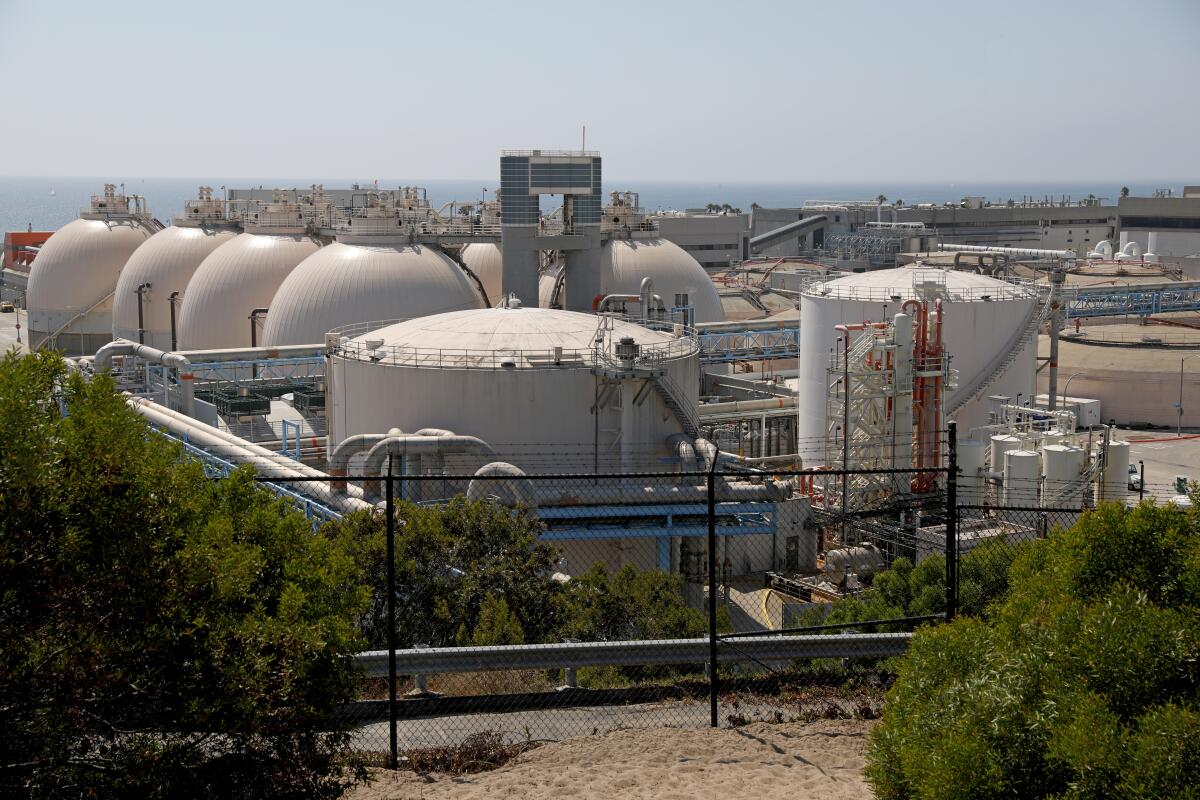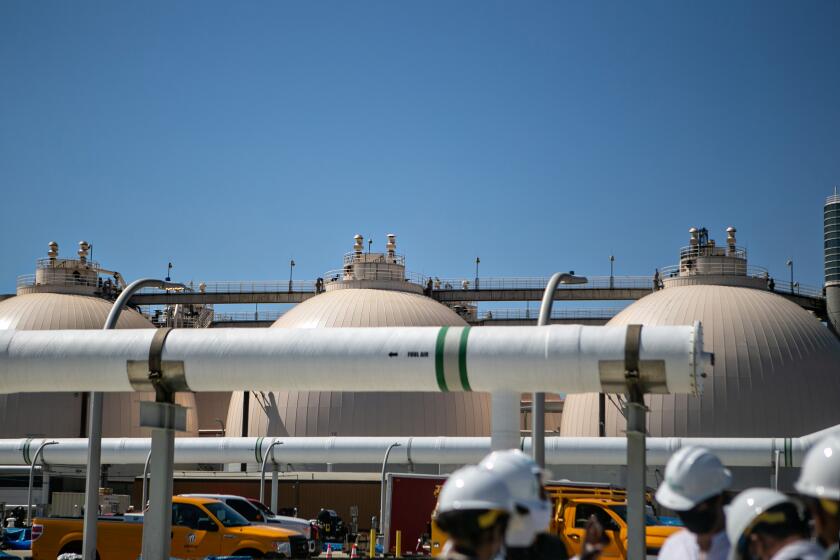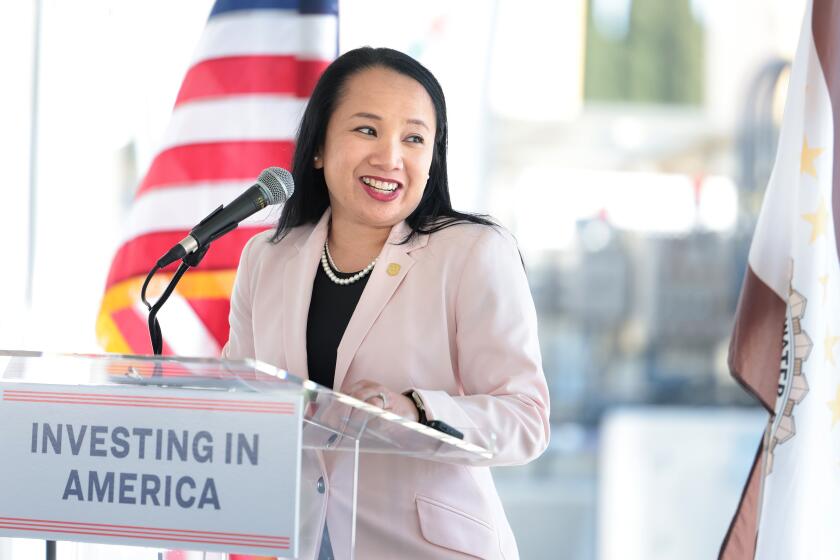After massive sewage spill that polluted beaches, L.A. agrees to spend $20 million on improvements

Three years after a massive spill at a Los Angeles wastewater facility sent millions of gallons of sewage into Santa Monica Bay, the city has agreed to spend more than $20 million on improvements to remedy the environmental blunder, according to a settlement with federal prosecutors announced Tuesday.
The agreement comes after an investigation by the U.S. Environmental Protection Agency and federal prosecutors into the 2021 spill at the Hyperion Water Reclamation Plant in Playa del Rey, the city’s largest wastewater treatment facility.
Federal prosecutors allege that the sewage spill “resulted from the city of Los Angeles’ failure to adequately staff Hyperion, train its employees at Hyperion and/or maintain Hyperion’s equipment,” though the settlement notes that the city does not concede these points.
But given the city’s compliance with the new agreement, the U.S. attorney’s office for the Central District of California will not pursue a case for any potential violations of the Clean Water Act and other federal laws.
“Environmental issues are incredibly important to us in Southern California. … We love our beaches and we want to keep our oceans clean,” said E. Martin Estrada, U.S. attorney for the Central District of California. “So this issue was very important to me, and for my office, to address [the sewage spill] and put some real teeth into remediation, to do everything we can to make sure that doesn’t repeat.”
He said prosecutors could have sought a fine against the city but instead wanted to see “that money reinvested in the community.”
Following a massive sewage spill in 2021, the Environmental Protection Agency has ordered improvements at the Hyperion water treatment plant in Playa del Rey.
As part of the settlement, the city agreed to spend at least $20 million on a slew of fixes at Hyperion — many of which L.A. officials say are underway — including improving its monitoring systems and overflow channels, updating emergency operations, maintaining proper staffing and employee training as well as improving the facility’s resiliency to extreme weather in the face of climate change.
Intense winter downpours have overwhelmed sewer pipes across L.A. and pose increasing challenges for the region’s water infrastructure as weather extremes have become more frequent in the warming atmosphere.
These changes were ordered in March by the EPA, but it wasn’t initially clear how much the city would spend on the improvements.
The new agreement also requires that several additional measures be taken, including yearly audits of Hyperion by a third party, increased water testing sites in Santa Monica Bay, plans to more frequently test for bacteria in the ocean, and an outreach project aimed at benefiting the communities directly affected by Hyperion’s operations. The community project calls for improved emergency communications and educational programming with residents. The new requirements are estimated to cost the city $800,000, the settlement said.
Ivor Pine, a spokesperson for the L.A. city attorney, said officials are committed to “completing more than $20 million in planned capital improvements at the plant while also expanding the city’s robust existing water quality testing program and creating a new community outreach service program.”
“The City of Los Angeles is committed to ensuring that our water is safe and clean for all Angelenos and our ocean wildlife,” Pine said in a statement. “The City has worked cooperatively and diligently with state and federal partners to address the incident and any resulting regulatory inquiry.”
The Hyperion facility serves more than 4 million people in L.A., Santa Monica, Culver City, West Hollywood and a few other nearby cities.
The Biden administration announced $179 million for wastewater recycling projects, boosting plans to build the nation’s largest plant in Southern California.
In July 2021, screens at the plant that filter out debris and other large solids from wastewater jammed and shut down, overwhelming the facility’s system, according to the EPA and federal prosecutors. Untreated sewage overflowed, flooded part of the plant, then entered a drain system that carried it about a mile offshore. The spill discharged about 12.5 million gallons of untreated wastewater into Santa Monica Bay.
Federal prosecutors said that water testing and monitoring around the spill found “exceedances of applicable water quality standards for total coliform bacteria, E. coli, and Enterococcus,” the latter being another type of bacteria that can contaminate waterways.
Initial reports estimated that the spill discharged 17 million gallons into the ocean, but the EPA review found that about 4.5 million gallons of the sewage that almost went into the ocean were pumped back to the facility for treatment.
City officials in 2021 determined that the spill was worsened by delayed public notifications, including to nearby emergency responders and beachgoers. Dockweiler and El Segundo beaches were closed after the spill and remained that way for a few days until water quality was confirmed safe.
More to Read
Sign up for Essential California
The most important California stories and recommendations in your inbox every morning.
You may occasionally receive promotional content from the Los Angeles Times.













